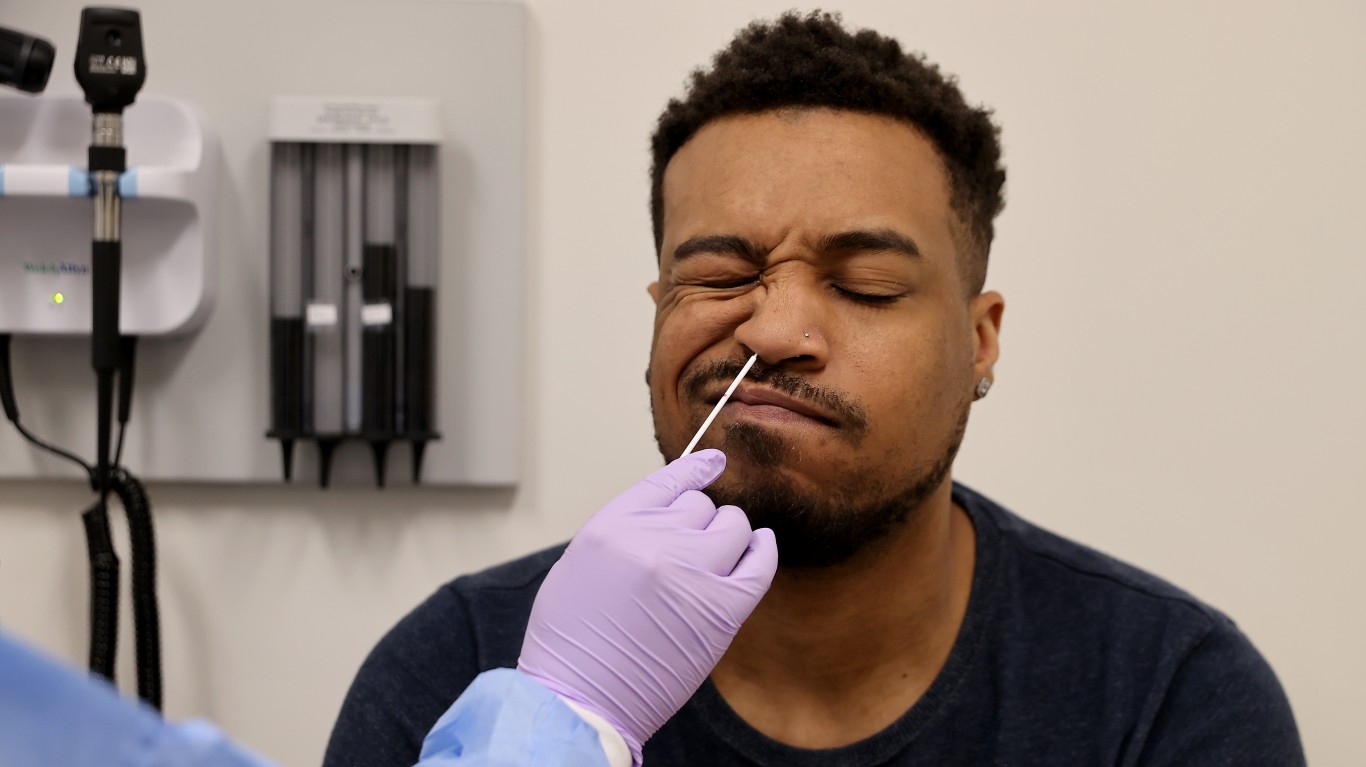Health and Healthcare
COVID-19 Testing Creates a Boom for LabCorp and Quest Diagnostics

Published:

One of the most important aspects of reopening the economy during this pandemic is testing for COVID-19. It poses a unique problem as demand for testing consistently has outpaced capacity. However, as more companies are ramping up production for test kits the problem is becoming more manageable. Credit Suisse sees a couple of winners that are benefitting incredibly from this.
As federal, state and local authorities support the broader reopening of the U.S. economy, this has come with further spikes of COVID-19 cases in certain places across the country. Diagnostic testing for both the active virus (molecular testing) and for potential immunity (serology testing) has remained in focus.
According to Quest Diagnostics Inc. (NYSE: DGX), the national laboratory began to see an unprecedented surge in demand for molecular COVID-19 testing beginning in late June, particularly in the south, southwest and western regions of the country, effectively outpacing its current capacity. At the same time, this extended the average turnaround times for all non-priority patients.
As testing demand continues to rise, both Quest Diagnostics and Laboratory Corp. of America Holdings (NYSE: LH) are increasingly investing to expand COVID-19 testing capacity. While these companies are now able to run 120,000 and 130,000 molecular diagnostic tests per day, respectively, both companies expect to ramp to 150,000 tests per day by the end of July.
Since the onset of the pandemic, members of the American Clinical Laboratory Association (ACLA) have conducted roughly 19 million tests in the United States. Out of these 19 million, Quest Diagnostics and LabCorp account for 7 million and 6 million, respectively.
In terms of serology, Quest Diagnostics and LabCorp can now run up to 200,000 and 300,000 COVID-19 antibody tests per day, respectively, with both companies having conducted about 2 million serology tests to-date each.
Credit Suisse expects that demand for antibody testing will remain robust over the coming months as the country continues to support efforts to “flatten the curve.”
Credit Suisse further broke it down in its report:
In light of robust COVID testing, which ramped quicker than expected throughout the second quarter, as well as an improving core testing backdrop as elective procedures began to recover more quickly than initially expected, we are raising our estimates for the clinical laboratories. For Quest Diagnostics and LabCorp, we are raising our second quarter EPS estimates to $0.27 (from -$0.17) and $0.96 (from -$0.33), respectively, as well as our 2020 EPS estimates to $5.95 (from $4.22) and $11.35 (from $8.02), respectively, on incrementally better COVID testing volumes than previously forecasted, which should provide a greater offset to headwinds across core testing volumes, as well as better than expected operational leverage, driving a better overall margin performance that previously anticipated. We are also raising our TPs for Quest Diagnostics and LabCorp to $126 (from $123) and $215 (from $206), respectively, on the higher view.
Note that Credit Suisse has a Neutral rating for Quest Diagnostics, and LabCorp is rated as Outperform.
Credit card companies are pulling out all the stops, with the issuers are offering insane travel rewards and perks.
We’re talking huge sign-up bonuses, points on every purchase, and benefits like lounge access, travel credits, and free hotel nights. For travelers, these rewards can add up to thousands of dollars in flights, upgrades, and luxury experiences every year.
It’s like getting paid to travel — and it’s available to qualified borrowers who know where to look.
We’ve rounded up some of the best travel credit cards on the market. Click here to see the list. Don’t miss these offers — they won’t be this good forever.
Thank you for reading! Have some feedback for us?
Contact the 24/7 Wall St. editorial team.